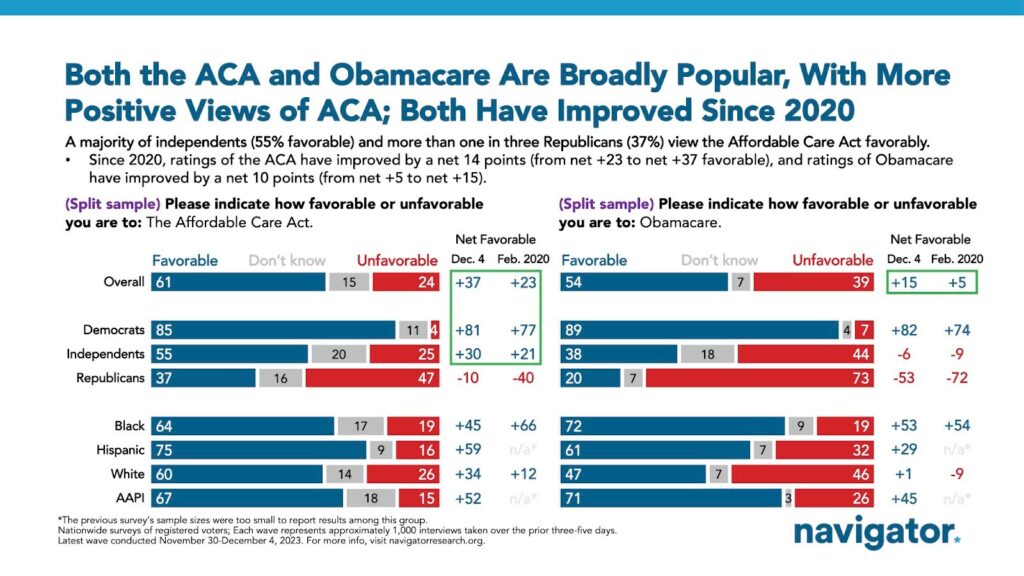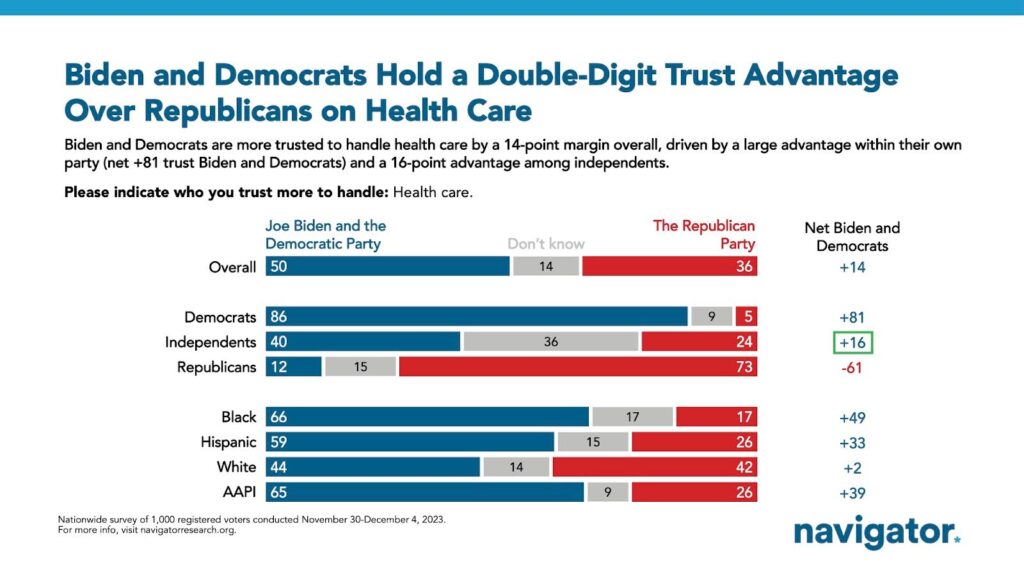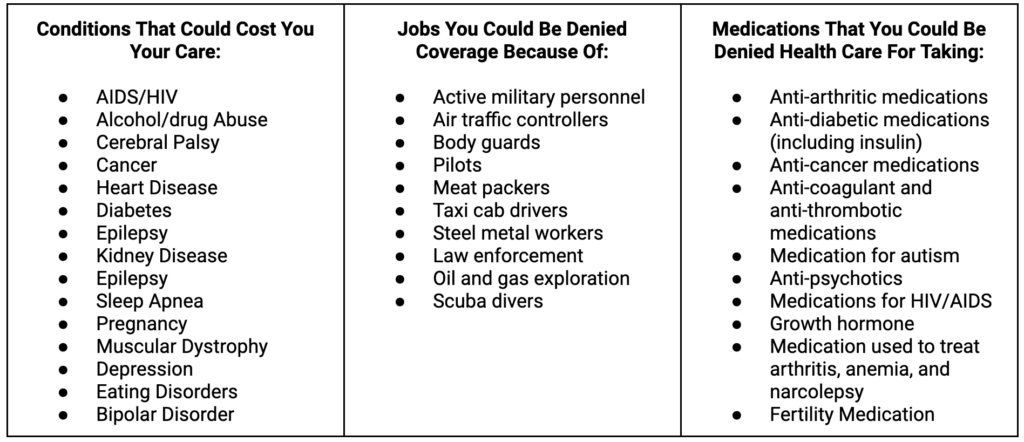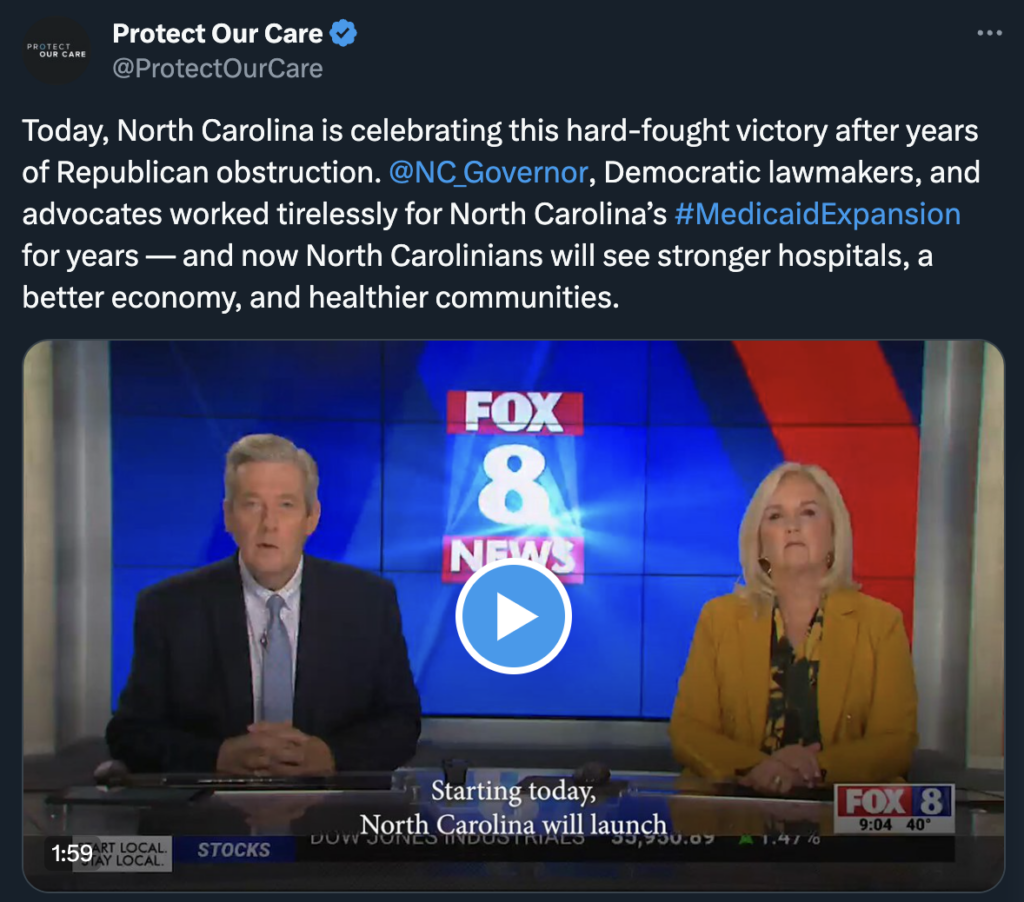North Carolina’s long-awaited Medicaid expansion program takes effect today, extending affordable health care to an estimated 600,000 people. The news comes as Donald Trump renewed calls to repeal the Affordable Care Act (ACA) — including Medicaid expansion — and rip coverage and core protections away from millions of Americans.
Prior to this year, North Carolina was just one of 11 states that still refused Medicaid expansion after years of Republican obstruction. Democratic Governor Roy Cooper has fought tirelessly for expansion, making it one of his central priorities since taking office in 2017. In addition to securing coverage for those who need it, this measure will strengthen the economy, boost support for rural hospitals and other safety net providers, and relieve hardships for families living in poverty. Medicaid expansion will especially help low-income workers, moms and children, people with disabilities, and Black, Brown, Indigenous, and rural residents.
FEATURED:
President Joe Biden: “Every American deserves high-quality affordable health care. Today, we are one step closer towards meeting that promise, as 600,000 North Carolinians can now access the affordable, quality coverage they need under Medicaid. Thanks to Governor Roy Cooper’s years of leadership, in partnership with bipartisan elected officials, North Carolina is the 40th state to expand Medicaid under the Affordable Care Act.” [White House, 12/01/23]
Governor Roy Cooper: “Friday will be a historic day for North Carolina, with thousands of people across our state gaining access to critical health care. Medicaid Expansion will boost our economy, help keep rural hospital doors open and make our state a healthier place for all.” [X, @NC_Governor, 11/30/23]
Protect Our Care: “Today, North Carolina is celebrating this hard-fought victory after years of Republican obstruction. @NC_Governor, Democratic lawmakers, and advocates worked tirelessly for North Carolina’s #MedicaidExpansion for years — and now North Carolinians will see stronger hospitals, a better economy, and healthier communities.”

[X, @ProtectOurCare, 12/01/23]
HEADLINES:
AP: Hundreds of Thousands in North Carolina Will Be Added to Medicaid Rolls This Week. “Expansion should help reduce the percentage of North Carolina’s adults under age 65 who are considered uninsured. A 2022 report from the National Center for Health Statistics estimated North Carolina’s uninsured population at 17.6%, significantly above the national average of 12.6%. The state currently has 2.9 million enrollees covered by some form of traditional Medicaid.” [AP, 11/30/23]
WBTV: Medicaid to Expand Dec. 1 to Include Nearly 600K Additional NC Residents. “Medicaid in North Carolina is set to expand on Dec. 1 to include nearly 600,000 more residents who have been stuck in ‘the gap.’ The policy change expands the range of income and household size residents need to qualify for benefits. ‘It means life. It means that people who didn’t have coverage, who wanted to be able to go to the doctor, who wasn’t feeling well but, ‘I can’t afford it now…’ People, even if you had been denied before, sign up, because it’s opened up to so many more people,’ pleaded 68-year-old cancer survivor DonnaMarie Woodson.” [WBTV, 11/29/23]
ABC11: NC Medicaid Expansion Starts December 1st. How Does It Work? “Eight months ago, Gov. Roy Cooper hailed Medicaid expansion as historic for the state. ‘This law, when implemented, will be the working families bill of the decade,’ Cooper said at the bill signing in March. And starting this Friday, the governor’s ‘bill of the decade’ takes effect.” [ABC11, 11/30/23]
North Carolina Public Radio: Expansion Adds Hundreds of Thousands of North Carolinians to Medicaid. “The state’s Republican-controlled legislature had for years rejected expansion, part of the Affordable Care Act that passed during President Obama’s administration and derided by opponents as ‘Obamacare.’ This year, however, the Tar Heel state changed course.” [WUNC, 12/01/23]
WECT: Local Leaders Preparing as Medicaid Expansion Starts Dec. 1 in North Carolina. “NCDHSS Director Kody Kinsley recently stopped by WECT and laid out the impact this coverage will have. ‘They’re gonna be able to go to the pharmacy and have their prescriptions covered. They’re gonna have the peace of mind that if they end up in the emergency room that’s going to be covered. It’s a game-changing opportunity for North Carolina’s health,’ Kinsley said.” [WECT, 11/30/23]
WFDD: Medicaid Expansion in North Carolina Could Help Narrow Racial Disparities in Health Care. “An estimated 600,000 people are set to benefit from the launch of Medicaid expansion on Friday. Experts say it could also narrow disparities in health coverage and access to care in North Carolina. According to data from the Center on Budget Policy Priorities, Medicaid expansion reduces uninsured rates between white people and people of color. The nonpartisan research institute studies federal and state policies.” [WFDD, 11/30/23]
WITN: State Medicaid Expansion Launching Today. “Under the new law passed by the North Carolina Legislature earlier this year, more than 600,000 North Carolinians may be able to get health care insurance through Medicaid even if they didn’t qualify before. The Medicaid Expansion covers people 19 to 64 years old with incomes that were too high under previous Medicaid guidelines but too low for private insurance, according to The North Carolina Department of Human and Health Services.” [WITN, 12/01/23]
WRAL: After 14 Years, Billions to Flow as 600,000 Qualify for Medicaid Insurance in NC. “The plan, a legacy of 2010’s federal Affordable Care Act, will mean billions of dollars — annually — for state hospitals and doctors as more people are enrolled in the government insurance program. That means more people getting routine checkups and seeking earlier intervention for health issues. That, policy makers hope, will keep people out of the emergency room and cut costs for hospitals, particularly in rural areas — and make for a healthier, more productive population.” [WRAL, 11/30/23]
WWAY: Medicaid Expansion Takes Effect Tomorrow, December 1st. “Medicaid Expansion will officially take effect Dec 1. This will allow more North Carolina residents, ages 19 through 64, access to healthcare. … Medicaid Expansion is designed to allow more people more access to coverage for doctor visits, yearly check-ups, emergency care, and more.” [WWAY, 11/30/23]





 Read more here.
Read more here.  Source: Kaiser Family Foundation
Source: Kaiser Family Foundation